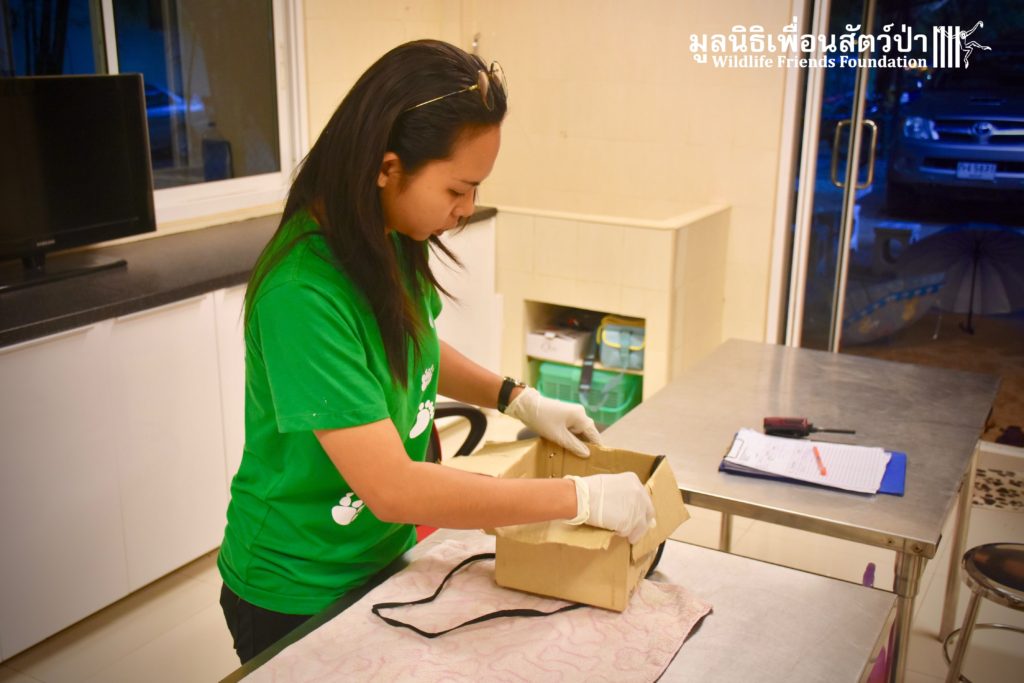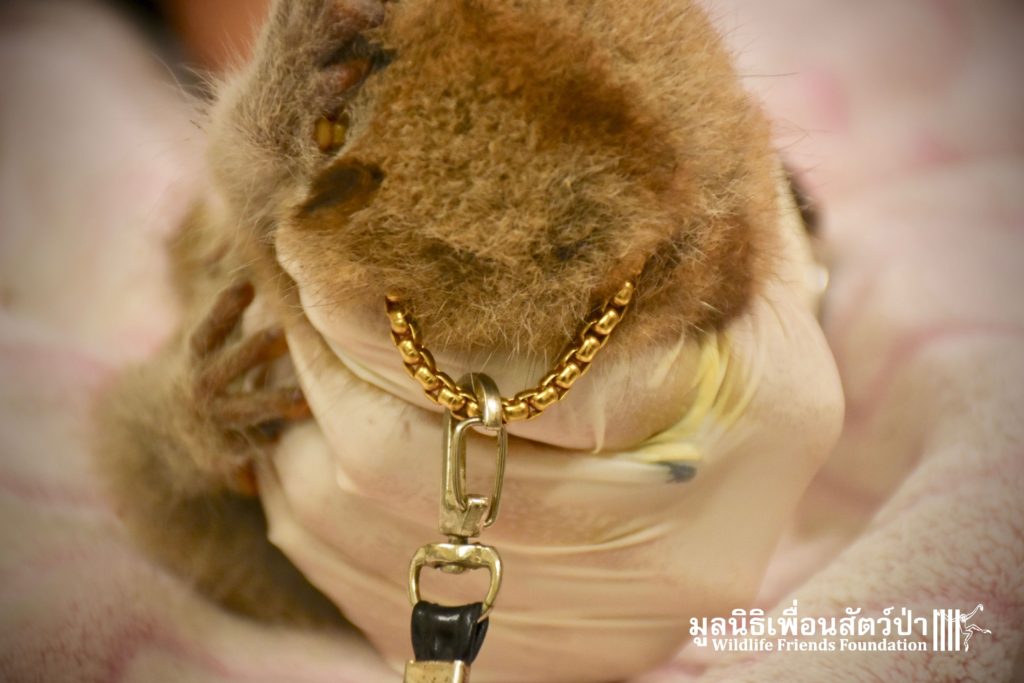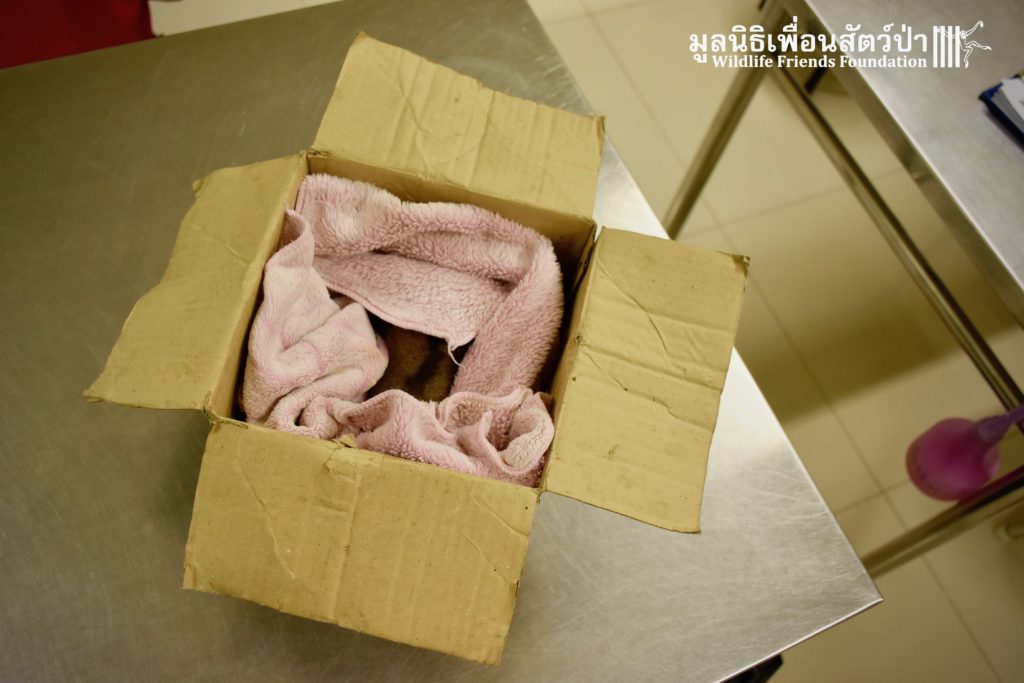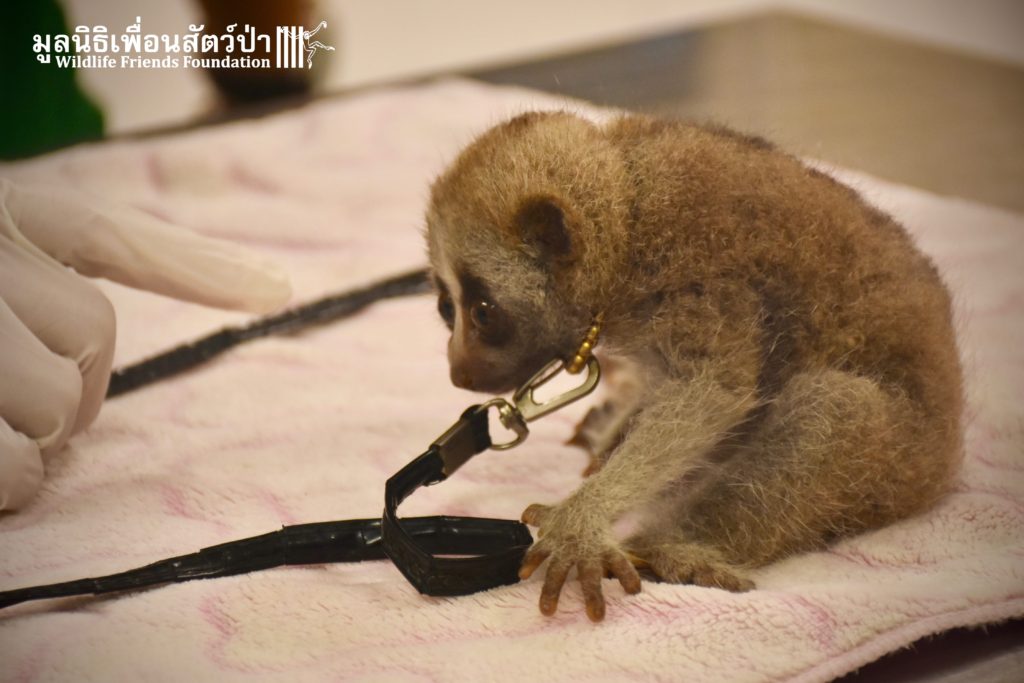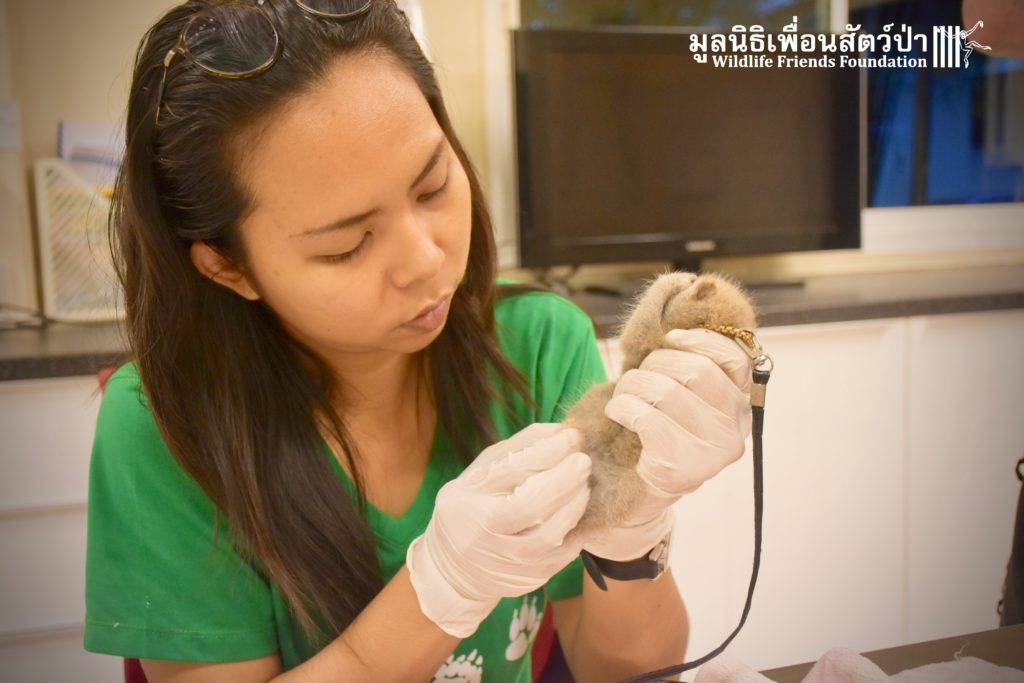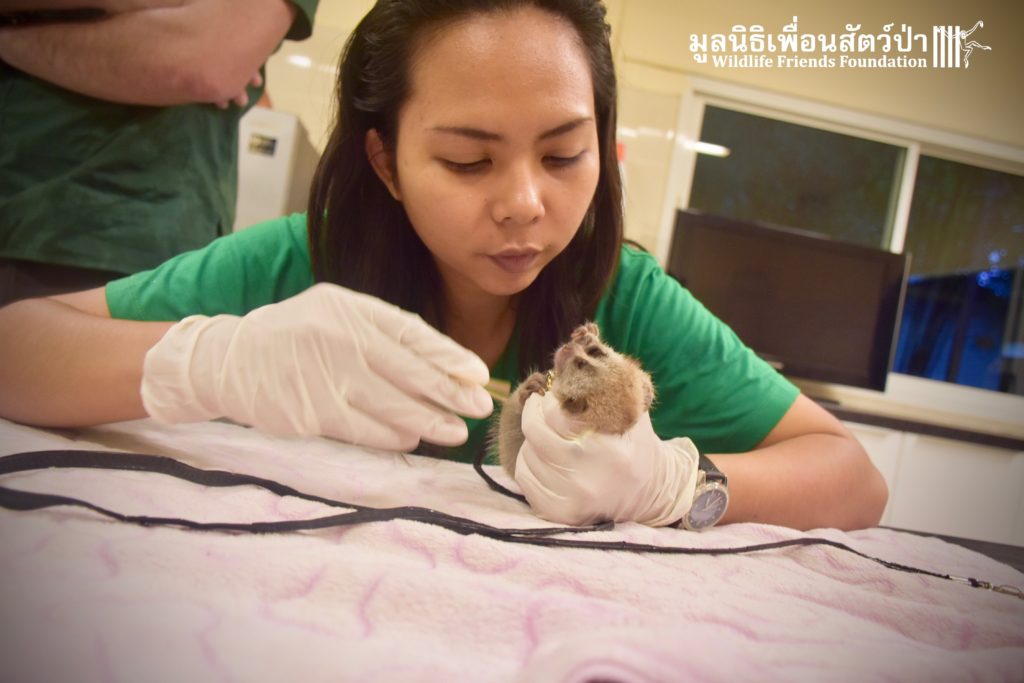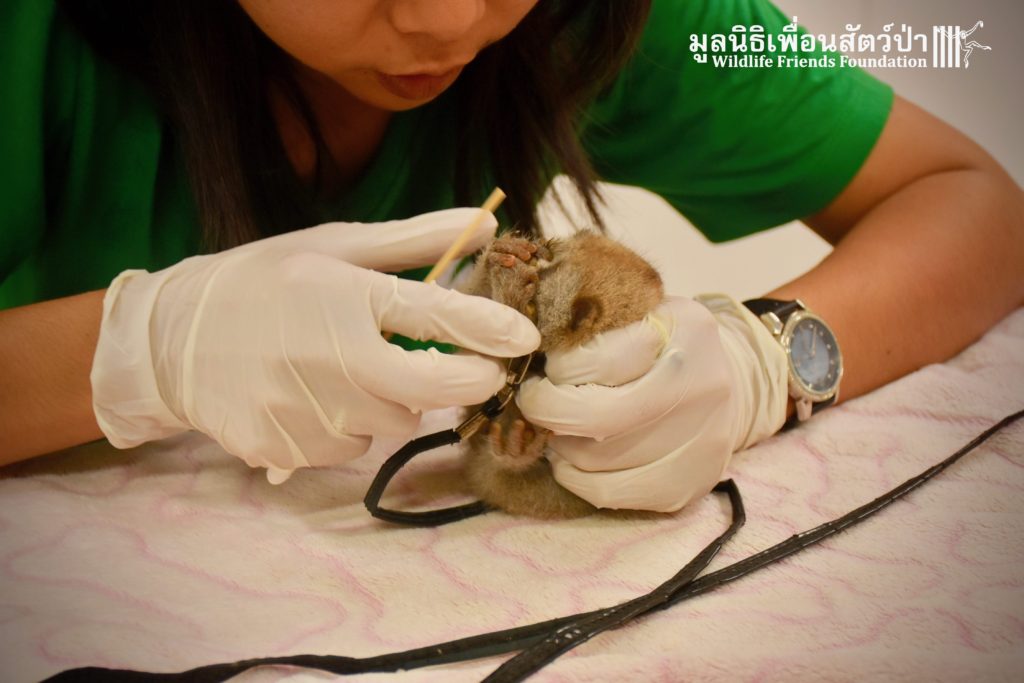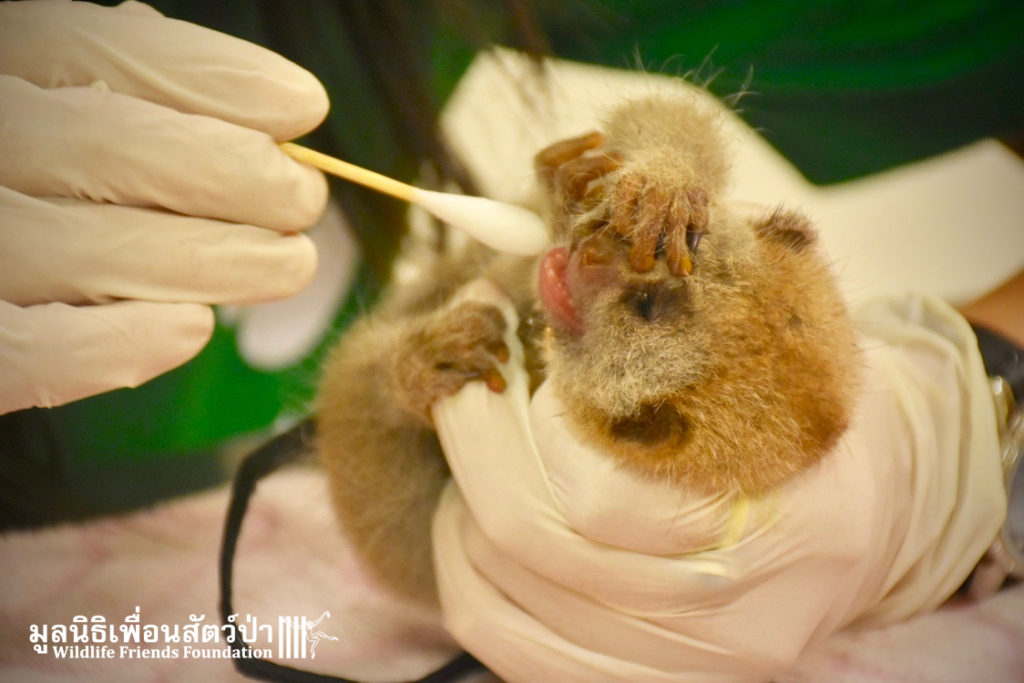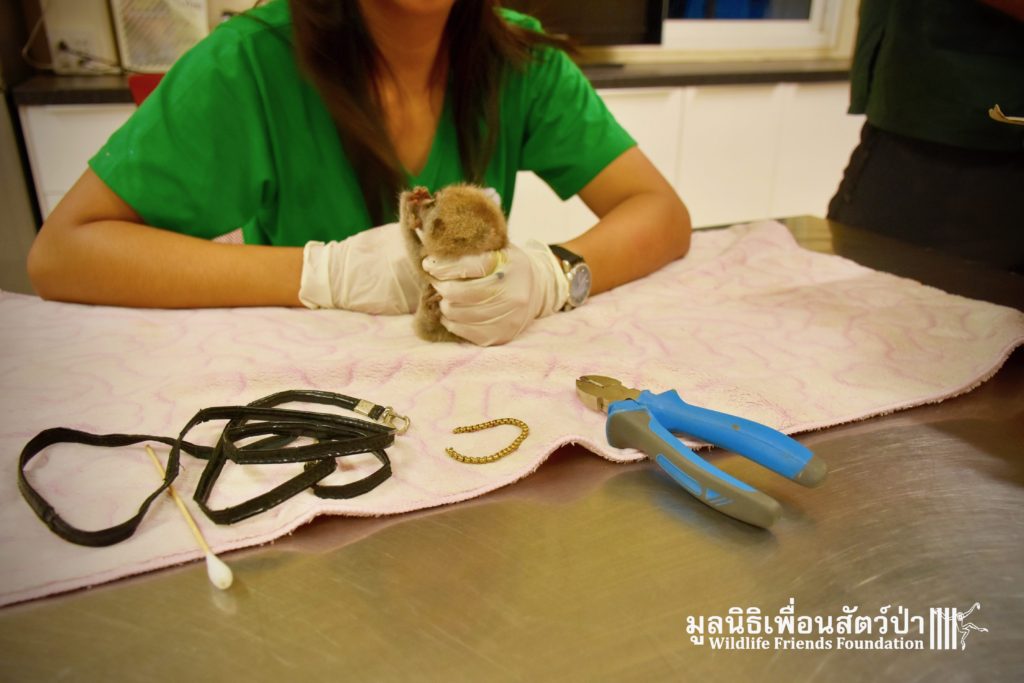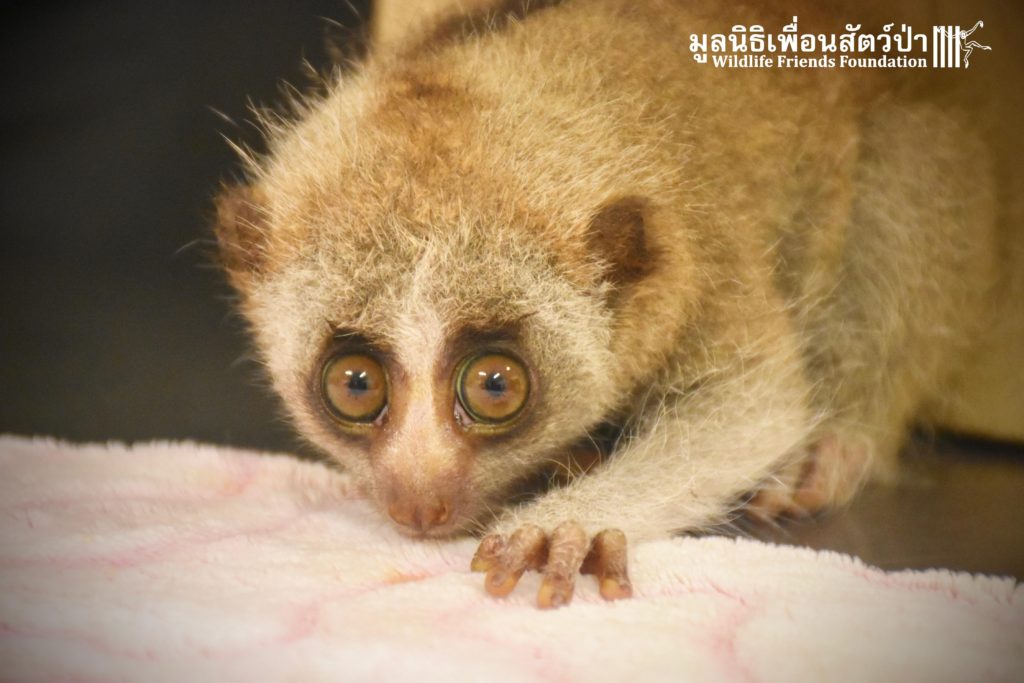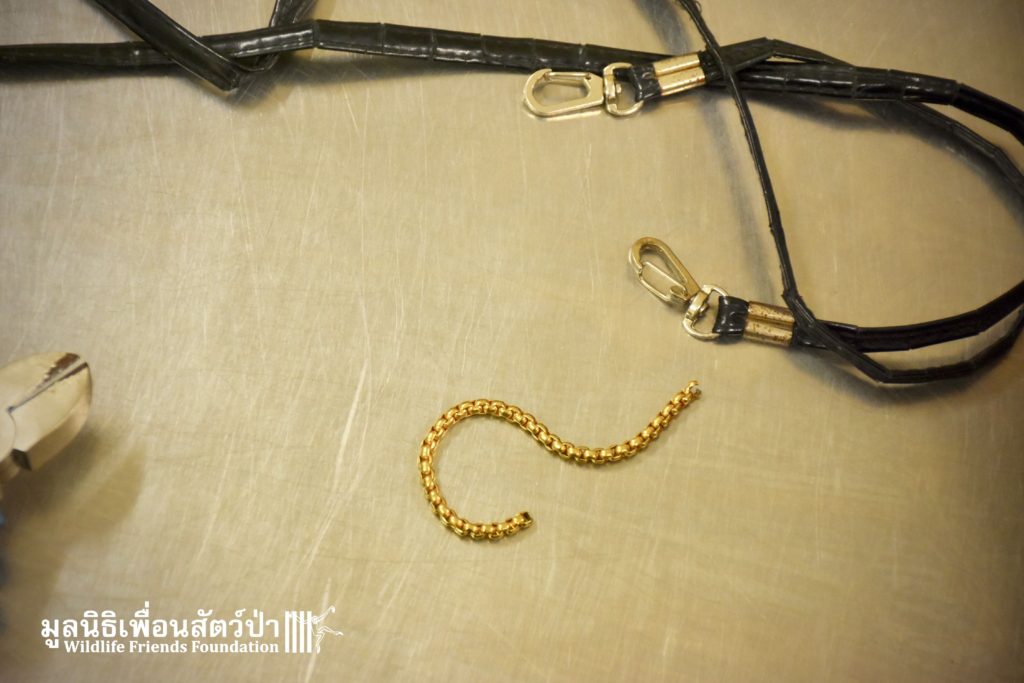Our team rescued a wild long-tailed macaque who had been struck by a car. He has severe injuries but our vets are doing everything possible
Welcome to Kermit! Our latest rescue
Last evening, a local girl brought a male young Bengal slow Loris into the WFFT Wildlife Rescue Centre (Nycticebus bengalensis) that our staff called Kermit (after Froggy and Toady, it was an evidence).
The woman explained to us that she went to a restaurant with her brother, and saw Kermit. She didn’t fully realize it beforehand, but the restaurant was known to cook wild animals, even probably lorises. When she saw Kermit, her heart melted and she decided to help him. So, she bought the Loris to save him. After she briefly considered keeping the baby as a pet, she realized it was illegal and that the animal needed special care. She brought him to the WFFT wildlife hospital, and our Vet staff took him in.
The Bengal slow Loris is listed as Vulnerable (VU) by the IUCN Red List of Threatened Species, due to loss of habitat and severe pressures from hunting. There has been more than 30% reduction in its population over three generations. It is predicted to decline further in the next three generations, due to continuing hunting pressures and loss of habitat because of farming, timber removal, human settlement, road building, dams, power lines, fragmentations, soil loss or erosion, and fires. Bengal slow lorises are hunted and traded for food, traditional “medicine”, sport, and as pets.
After a health check by the WFFT Vet Team, it appears Kermit is in good health and he will join the herd pretty soon.
Let’s welcome Kermit!

